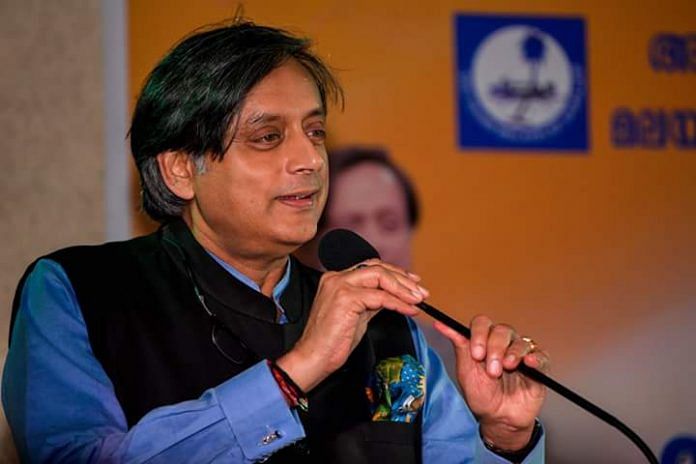New Delhi: “No company today would hire an unqualified candidate just because of a phone call from the MP.” That’s the new reality in India according to Congress MP Shashi Tharoor.
Tharoor, who represents Thiruvananthapuram, said 95 per cent of the requests he receives as an MP are to do with personal favours, such as helping students get into universities without good enough grades, or securing jobs. He said a lot of these requests are difficult to comply with, as many believe that an MP can help them bend the rules.
However, he said he had learned early in his political career to never say no to a constituent’s request. “Even if you can’t fulfil it, the constituents see your intent,” he said.
How MPs deal with their constituents and ‘clients’
Tharoor was in conversation with Yamini Aiyar, head of the Centre for Policy Research, and Kanchan Chandra, professor of politics at New York University, at the final session of the third annual South Asia Conclave, organised by the Oxford University Press.
The conclave aims to showcase recent publications pertaining to South Asia to a broader audience, and was attended by academics, politicians and journalists, among others. ThePrint is the digital partner of the conclave.
The panellists were discussing the book Clients and Constituents: Political Responsiveness in Patronage Democracies, written by Jennifer Bussell, assistant professor of political science and public policy at the University of California, Berkeley.
The panel was moderated by Niraja Gopal Jayal, professor at the Centre for the Study of Law and Governance at Jawaharlal Nehru University.
Bussell’s book examines different kinds of patronage which exist within a democracy. One type is partisan bias, whereby politicians give political favours to constituents they know will vote for them. An example of this is building large-scale infrastructure projects in an area with a high concentration of supporters.
Bussell found that high-level legislators in India often provide direct, non-partisan assistance to individual constituents. An important factor in this transaction is the fact that MPs meet with large volumes of their constituents to address individual concerns — despite India’s population of over one billion people, over 6 per cent of Indians stated that they had been to see an MP in the last month.
Also read: How’s the josh? For defence sector, the real question is where’s the money: Shashi Tharoor
Communication and coordination a challenge
Aiyar pointed out that one of the biggest challenges in fulfilling these requests from constituents is that there is confusion as to which level of government provides which services. Often, constituents fail to have their needs met by the bureaucracy, and take their complaints directly to politicians at the state level, who are unable to help them.
Aiyar said solving this communication and coordination challenge will see better delivery of services and less direct patronage at the individual level. One key part of this has to start with constituents, she said.
“We don’t talk about the sheer size of our constituencies. And over time, as we have reduced the electoral campaigns to three weeks, we don’t understand what all constituents want,” Aiyar said.
She also noted that the size of constituencies, which can vary widely, has an effect on representation, meaning that some groups compete for resources more than others.
The discussion ended with all the panellists acknowledging that further research needs to be done to account for India’s massive population, and the various motivations of politicians to engage in patronage in democracies.
Also read: Shashi Tharoor: Obituaries for Congress premature. Here are 9 ways to correct its course




Indirectly he is admitting that today’s India has changed under Modi. Which means earlier MPs under various govts used to influence corporate in their employment practices, which would certainly have quid-pro-quo for bank loans, which we see as big NPA by the banks. Thanks Shashi. Somewhere truth has to come out.
This has been changing for a while and due credit to companies and institutions that use meritocracy as the yardstick for selection. A long way to go for us to truly make opportunities available to all, inclusive in naturr. Why politicise everything and make everything one man vs others? There are quiet leaders out there that are making change happen on the ground.